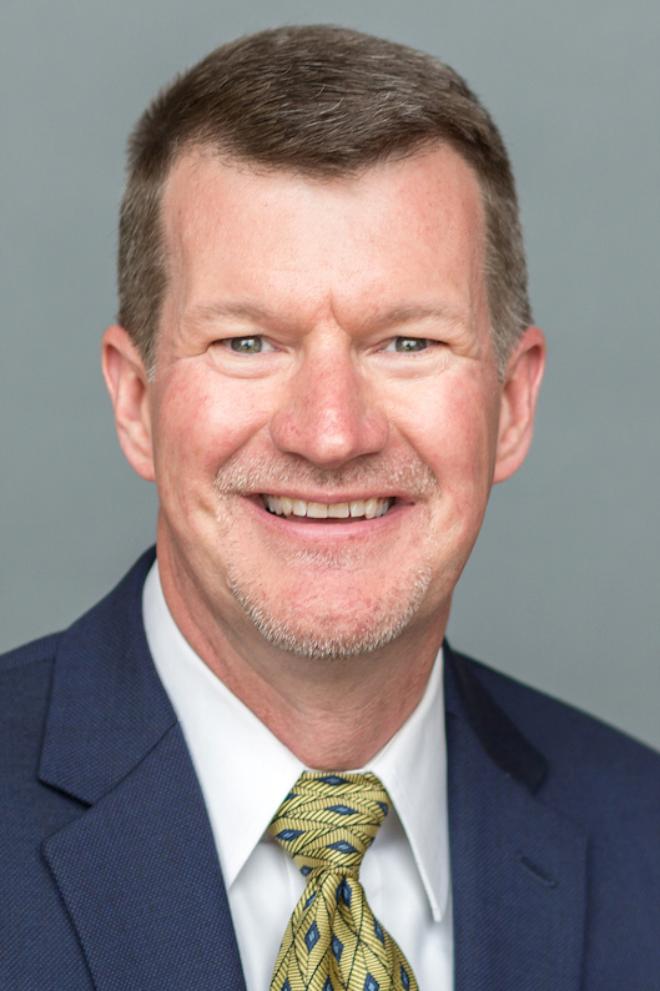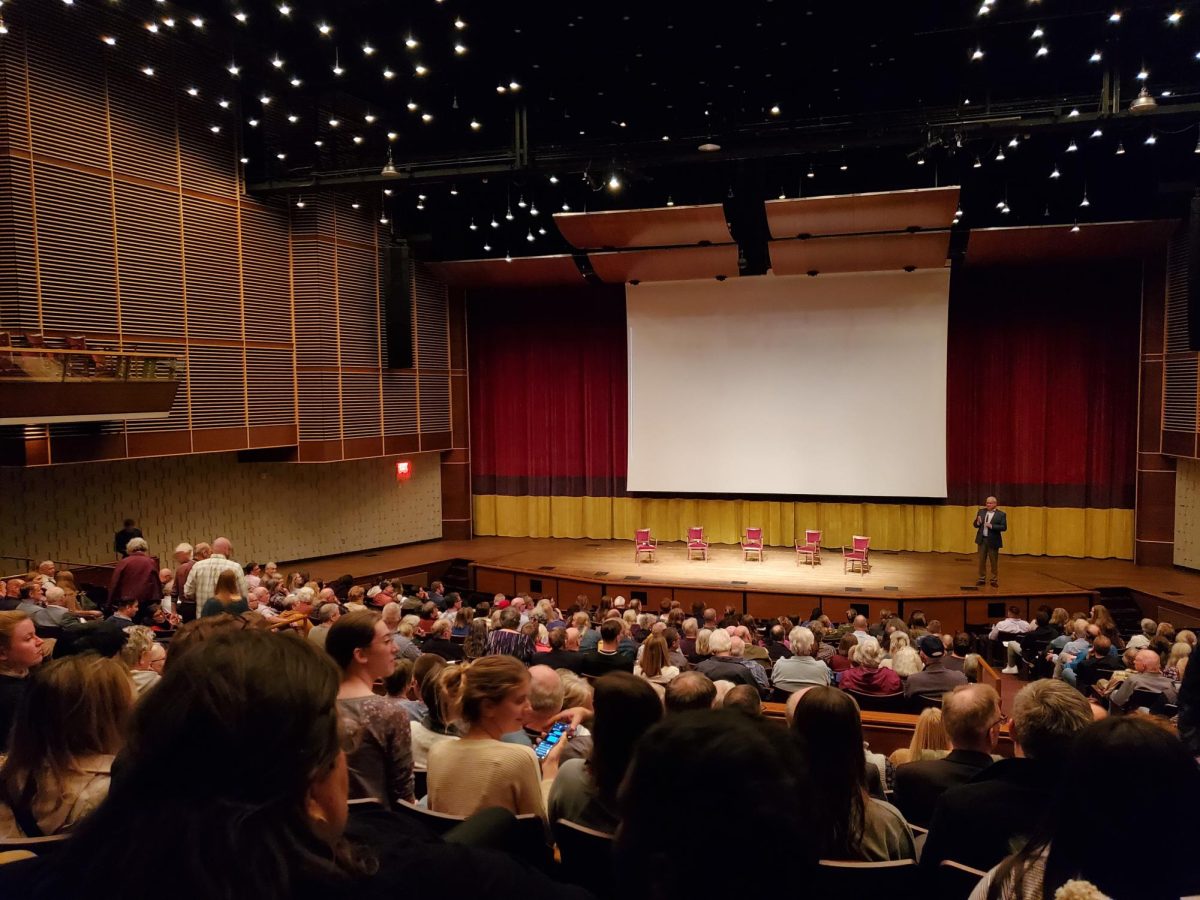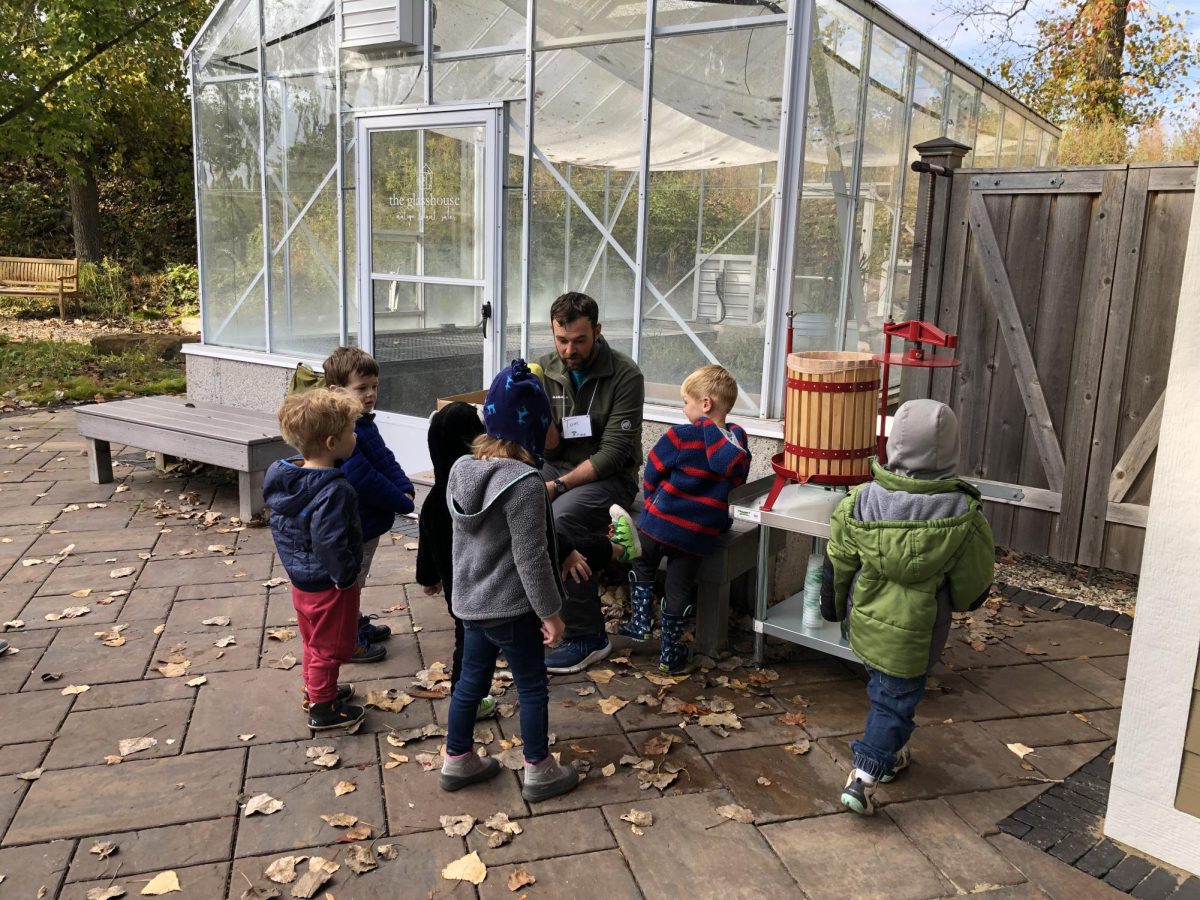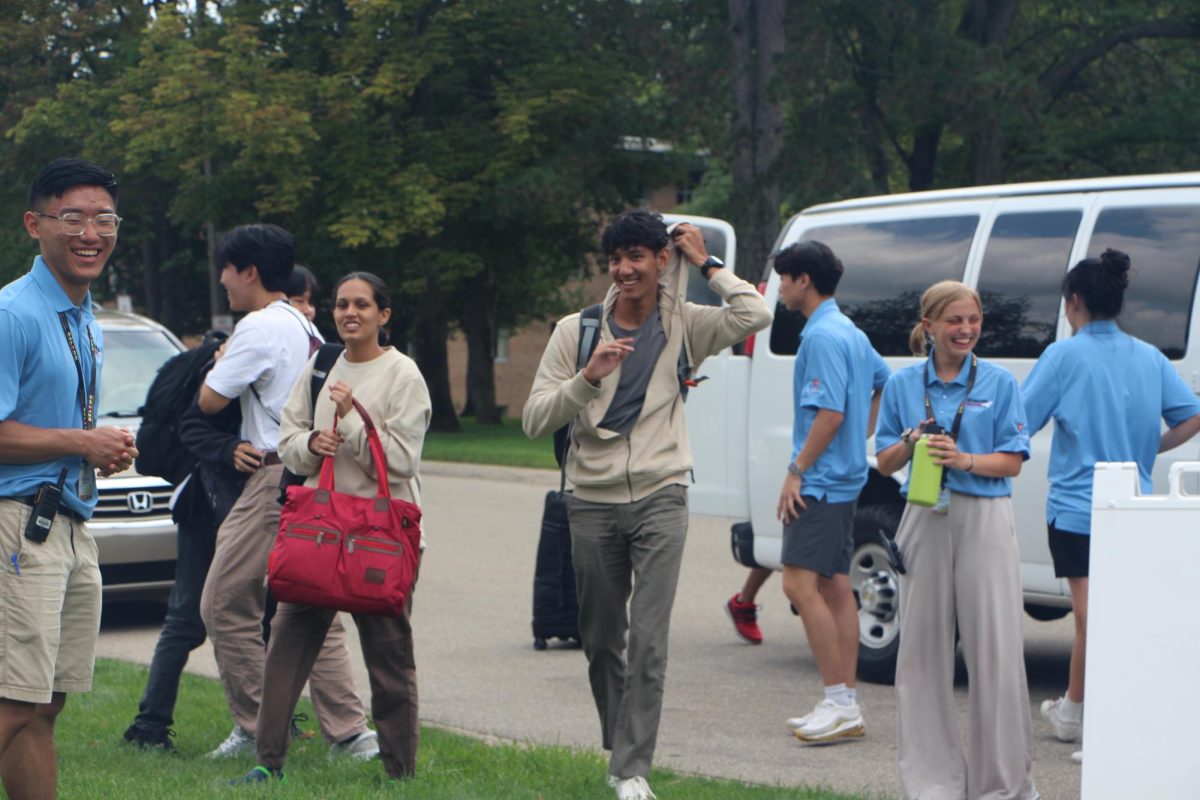Ericka Buitenhuis (and Hayley Cox)
As the rush of finals week begins to wind down, first semester comes to a long-awaited close and students begin perusing various class textbook lists for second semester, the three-week period known as Interim begins. Interim allows students to explore a variety of topics in an array of settings. Whether learning how to quilt, analyzing business practices across Europe, discussing the January Series in depth or trekking through the Amazon Rainforest, Interim offers students a host of exciting opportunities. While continuing to challenge their minds educationally and spiritually, during Interim, students can study more unusual topics in classes either here in Grand Rapids or across the globe.
Jon Gorter
Wildfire: Cultural Ecology (IDIS-W62)
This January, students will have the opportunity to re-evaluate what they think they know about wildfires and appreciate them for their crucial role in shaping the landscape. Biology professors Randy VanDragt and David Warners will challenge students to reexamine fire by observing its role in shaping ecosystems.
“We tend to demonize fires, which is foolish and detrimental to ecosystems … we must recognize the significance of fires,” said Annaka Scheeres, a third-year biology student who has studied wildfires at the Au Sable Institute of Environmental Studies.
Students in this course will learn to appreciate the benefits and necessity of fire by first studying how natural fires occur and exploring their effects, then learning how native people used fire, and finally discovering how Europeans suppressed fire. Part of the course will examine how fire is used to restore prairie landscapes, a task experienced first-hand by biology student Cassidy Richards, who was involved in a controlled fire last summer.
“Fire is commonly conceived as a negative thing,” said third-year geography student Charlotte Reynolds, “but that’s not always the case. I think ‘Smokey the Bear’ is giving children the wrong message.”
Ye Joon Chung
Bowling (PER-137)
Looking for a relaxing break from academic classes? Take bowling this Interim and fulfill a PE core at the same time.
“Professor Sparks creates a really fun and competitive atmosphere for students of any skill level to enjoy,” said David Lee, a previous student of the course.
This course is ideal for students who are looking for an affordable but fun Interim class and need to fulfill a core requirement along the way.
“I originally wanted to take the Ethiopia Interim, but the expenses were almost $4000,” said David Park, a prospective bowling applicant.
“The best part about taking bowling for Interim is that you get core credit and you actually get a break from school,” said Linda Ok, a graduate who took the course last year.
This course will also take students into the community as it will meet at AMF Bowling Alley, next to Centerpointe Mall.
Sydney Chipman
I Long, Therefore I Am (IDIS-W14)
One thing we all struggle with throughout our lives is the “sense of deep yearning or longing or unquenchable desire or ache or existential restlessness.” How do we handle this, especially balancing the crazy schedule of the average college student?
[Well, there’s] a class for that. During the Interim semester of 2015, philosophy professor Kevin Corcoran will be teaching the class IDIS W14 “I Long. Therefore, I Am”, a class focused on exploring the feature of the human condition through literature and film.
“This class really helped me take the time to sit and consider desires I didn’t even know existed,” says former student, “it definitely wasn’t what I expected. It wasn’t your stereotypical college course where you listen to the professor lecture for hours then are expected to write papers every night. We really got to explore our inner selves and figure out what this yearning was.”
This will be Corcoran’s second year in a row teaching this course, and several students are already excited and curious to take the class and see what it’s all about.
“After reading the description of the class and talking to some friends who took his course last year, I’m definitely planning on enrolling in that class,” claims Jenna Beckwith, “our inner longings aren’t something we actively think about, and the way it’s been described I imagine it can be incredibly enlightening if you throw yourself into it wholeheartedly.”
Ericka Buitenhuis
History of Science, Relgion, and Medicine:London (STBR 310HA)
“I tell students,” said professor Hessel Bouma III, “we aren’t going to London to sleep.” This coming January, Bouma is leading an Calvin Interim to London, England.
Bouma, who has spent more than a year of his life living in the London-Oxford area, will be taking 15 Calvin honors students to discover various important historical, religious, scientific and medical sites found within the city while also introducing them to the experiences of living in a hostel, using public transportation and wandering the halls of some of the country’s most prized exhibits.
While the trip is primarily focused on learning about the history of science, religion and medicine and its important role in British culture, Bouma assures unsure students that London holds enough treasures to tempt anybody to travel along, promising a packed agenda including planned stops at the London Eye, Buckingham Palace, the Tower of London and many more popular attractions.
John Leerar, a sophomore going on the trip this January, expressed excitement at the vast amount of things to see in London. “I can’t wait to see all the buildings,” said Leerar, “especially Westminster Abbey!” Leerar also hopes to catch a Premier League game on one of the three free weekend days planned in the schedule.
Students will also be venturing out of London on day trips to Stonehenge, Oxford, Cambridge, Downe, Salsilbury and Windsor and seeing three musicals, including the famous “Wicked” and “Les Miserables,” on the London stage.
It’s not all fun and games for these adventurous travelers, however. This is an honors course, and students will be required to complete readings, maintain a diary and write a research paper on a prominent person in the history of either science or religion.
Even with the promise of a little homework, students voiced excitement about learning and experiencing all that London has to offer. “I think at this point in your life is a great time to travel,” said Leerar. “Because you aren’t alone; you have ways to discuss what you are visiting and seeing,” he explained. “I think everybody should take advantage of this while they can.”
Juliana Ludema
The Lord of The Rings (IDIS-W17)
Calvin is bringing the hobbits back in this Interim with IDIS W17 “Tolkien’s ‘The Lord of the Rings.’”
Students will read the entire “Lord of the Rings” (LOTR) trilogy as well as portions of “The Simarillion” for the class. They will learn why and how Tolkien created the works, discuss themes with classmates, complete a creative project inspired by the novels and watch the movies.
Larry Molnar, the professor teaching the class, said “it’s a great book to share.” Though he said he can “add perspective so they can think about the book more deeply,” he looks forward to hearing students’ perspectives since “we each can find meaning in the book, but, because we aren’t homogeneous, we will find different things.”
Molnar, who teaches physics and astronomy, says he’s excited for this class because “physics doesn’t draw on student experience as much as LOTR, which is about life … this gives much more opportunity to share at a deep level.”
Evanne Zainea
Aiding in the Foreign Language Classroom (SPAN-358)
Students can immerse themselves in Spanish this Interim by taking SPAN 358, “Aiding in the Spanish Classroom,” a course which gives valuable teaching experience by having students prepare lessons and discuss pedagogy in the morning and carry out these plans in the afternoon by helping teach SPAN 122.
Many students take this class to gain the fluency that the need to pass the oral proficiency exam that all Spanish teachers need to take, while others seek to build their resumes for when they are teachers, according to past class members.
This class can also help one form great connections with fellow students who are excited about Spanish and teaching, according to past participants. “My favorite part of the class was the community of fellow students who really wanted to be there and had a passion for Spanish. It was nice to build relationships and friendships with students who were like-minded,” said Kathryn Deacon, a senior.
The class provides a whole new angle on teaching by preparing students for instruction in college and adult-beginner settings, according to professor Pablo Villeta, and his former students. They mentioned that taking the class can especially help students build clear, well-structured quizzes, an important aspect of teaching Spanish.
The students will be evaluated in the typical ways, by their lesson planning, class participation, and an oral presentation, as described by the website. However, according to Villeta, the class is worth more to students than their grades. “The students are passionate. They aren’t motivated by their grades in this class,” said Villeta, “But rather by the chance to experiment in a classroom.”
Helen Groothuis
Theology in Music and Movies (IDIS 150)
This Interim students will have the opportunity to explore Christian themes in movies and music through a DCM course titled “Theology in Music and Movies.” The course will be taught by religion professor Richard Plantinga.
According to the course description, students will examine “the expression of theological themes in select musical works and films,” including compositions by Joseph Haydn and Wolfgang Amadeus Mozart as well as films such as “The Mission” and “Amadeus.” Having taught this class before, Plantinga said the content has not changed much from previous years and students should come ready to decipher “basic Christian theology present in the works” and become “developed Christian thinkers.”
Plantinga hoped students will come away from the course with a willingness to watch things from a theological point of view.
“Students might see a nice story,” he said, “but often there is something else going on.”








